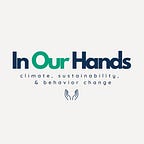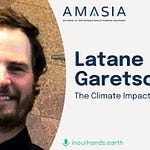In this episode, Ramanan speaks with Kevin Ummel, a research affiliate at the Population Studies Center at the University of Pennsylvania. Ummel is a leading expert in measuring household-level environmental impacts and the author of the most recent household impact study for the Citizens' Climate Lobby concerning the financial and political effects of a very hot topic, a redistributive carbon tax.
Kevin collaborates with academics and with NGOs and occasionally with for-profit types like myself on questions at the intersection of environmental economics and data science, including neighborhood-level mapping of carbon footprint, social inequality and modeling of policy impacts. He worked previously at the International Institute for Applied Systems Analysis in Austria and The Center for Global Development in Washington, DC.
They discuss carbon payments, frugality and sustainability, and effective strategies for reducing consumption. The full transcript is available above. This episode is also available on Apple Podcasts and Spotify.
In Our Hands is a production of Amasia. Follow these links for more about our firm, the Amasia blog, our climate fiction podcast, and Ramanan’s blog.
Highlights
[00:05:58] Household-Level Analysis of Climate Impact
[00:10:10] Carbon Payments and Inequality
[00:16:37] Frugality and Sustainability
[00:22:10] Tips for Reducing Consumption












